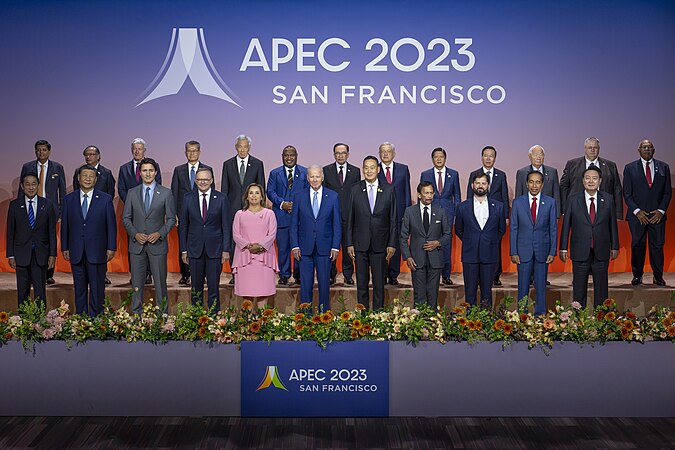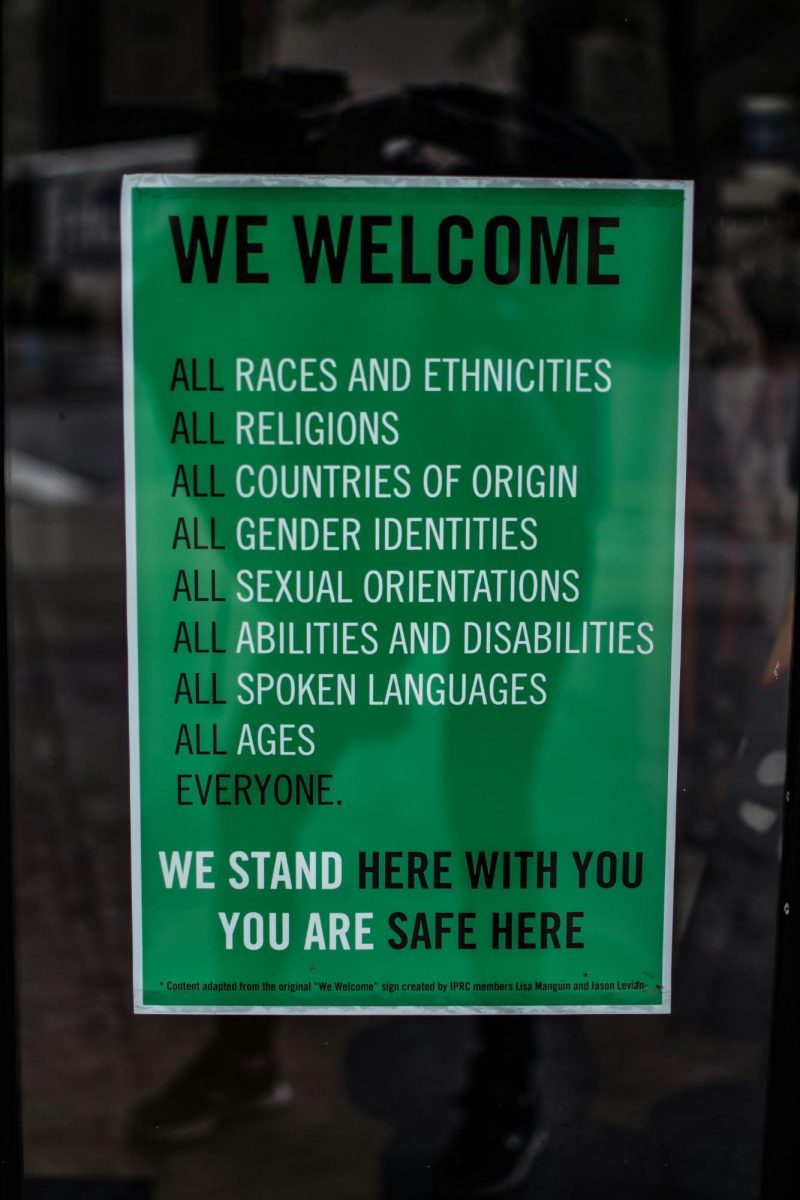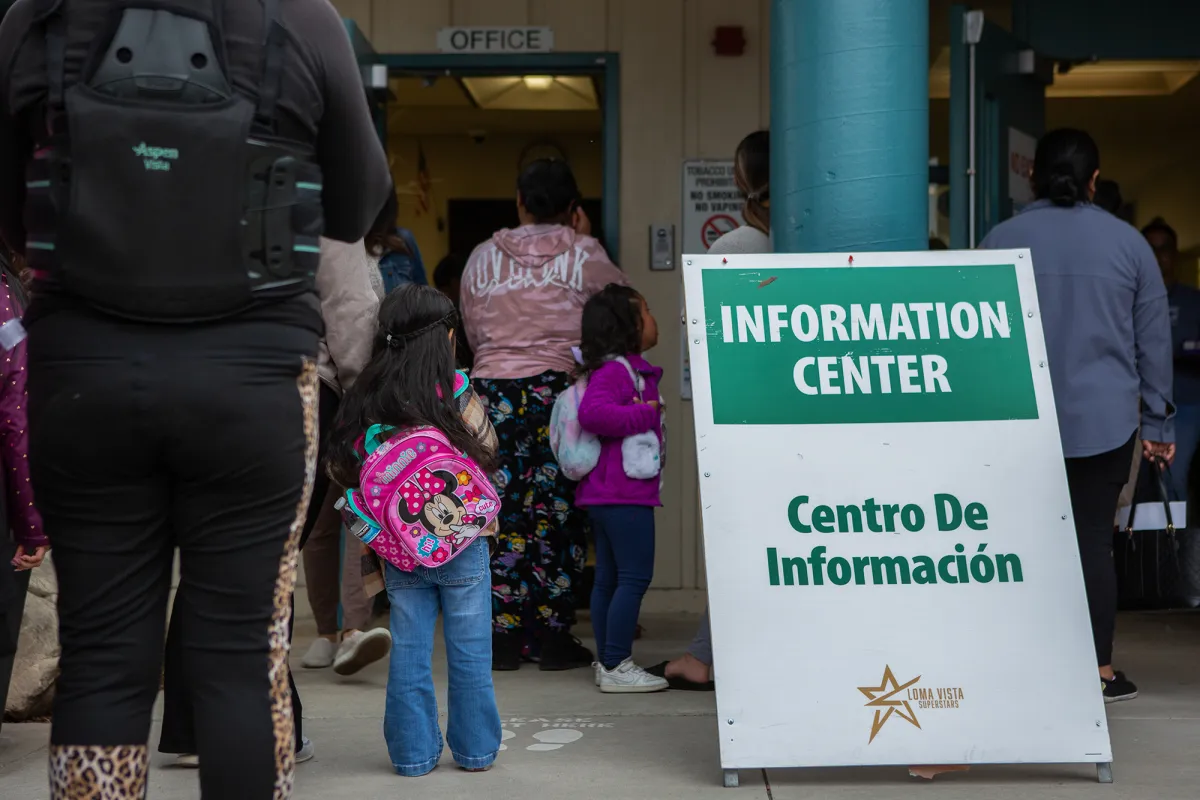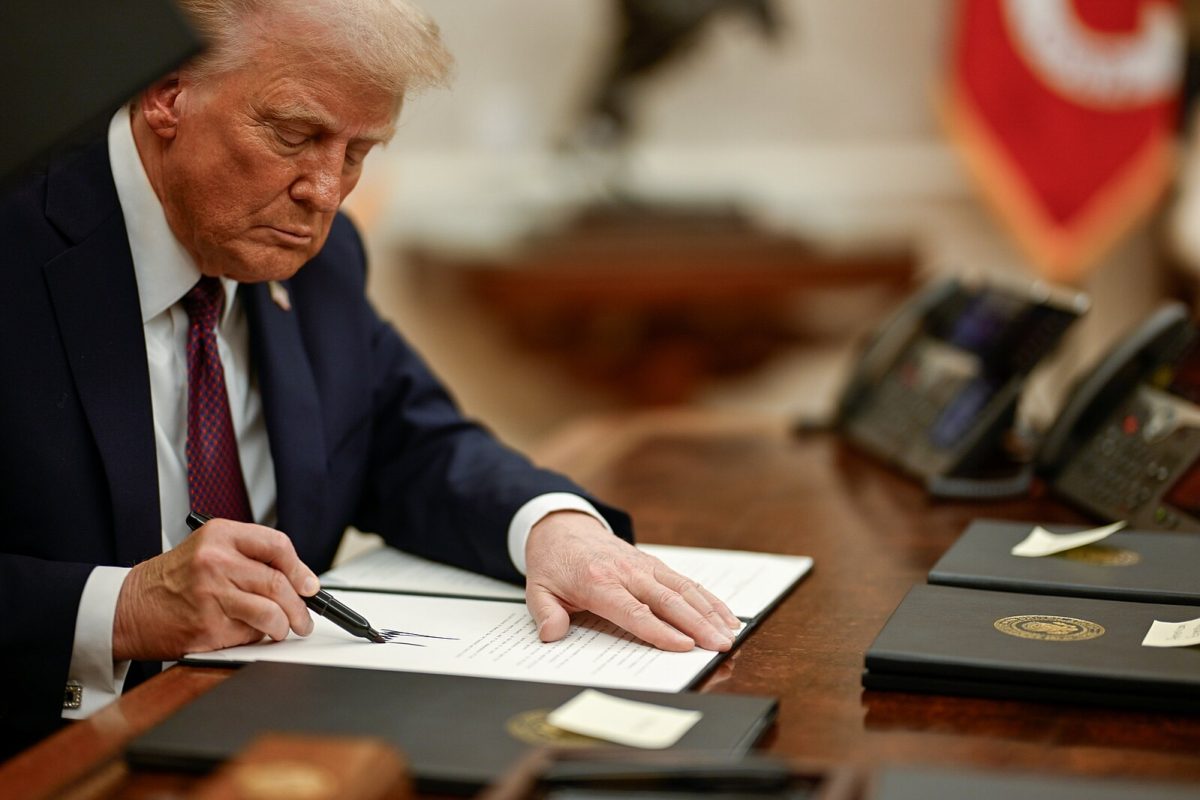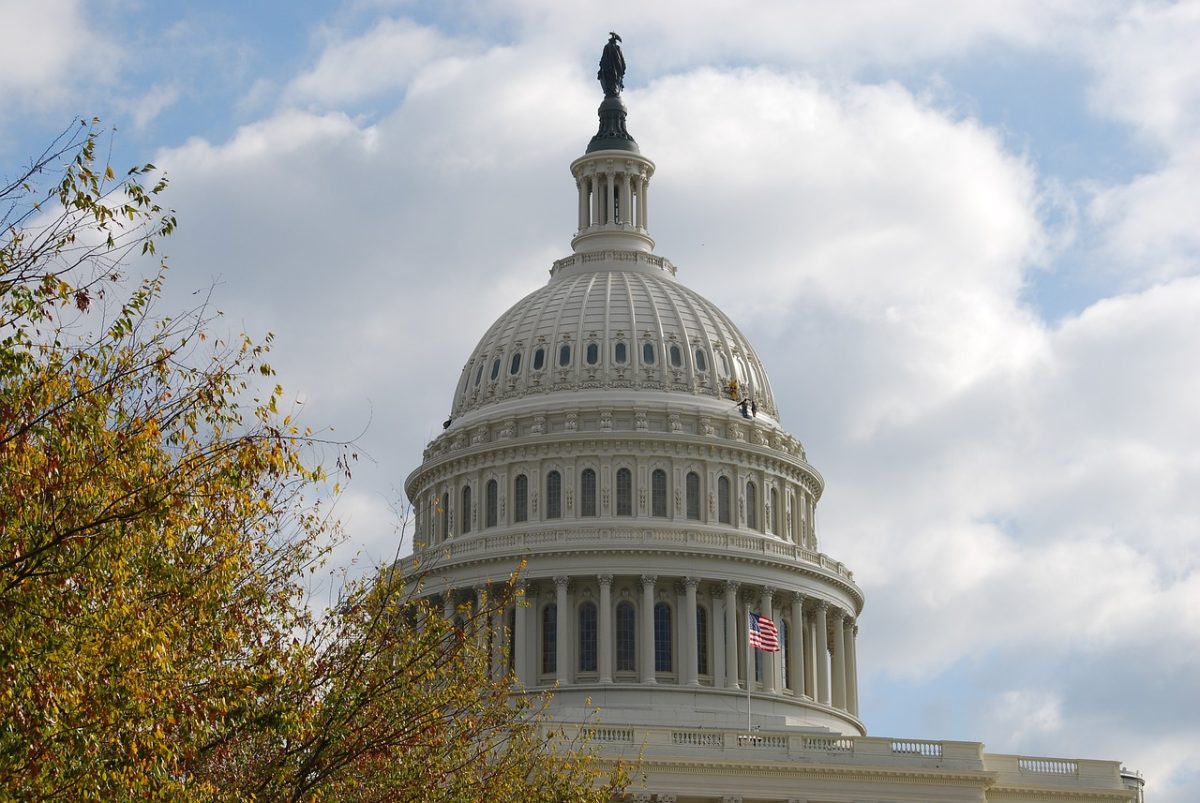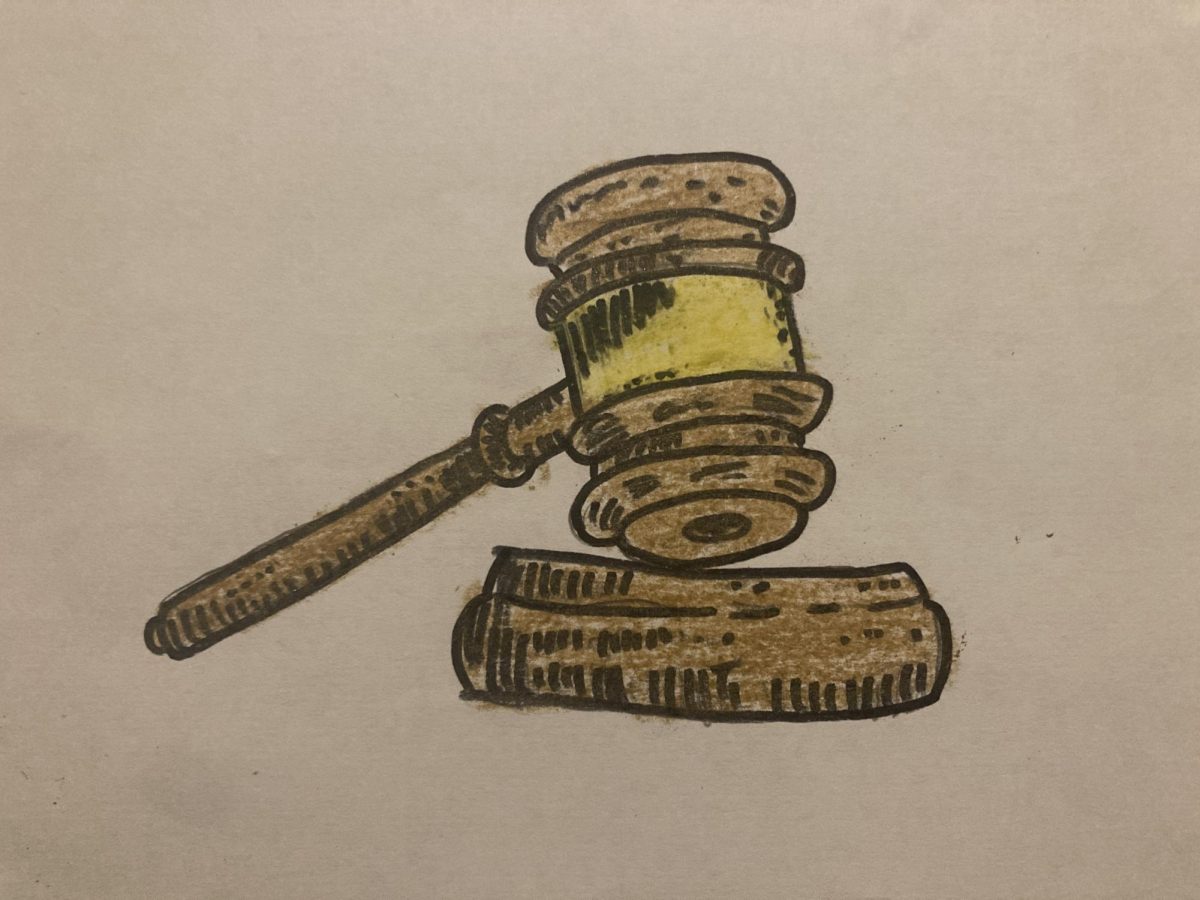From November 11 to November 17, San Francisco hosted APEC Leaders’ Week, an event of great political importance. The event saw a meeting between American president Joe Biden and Chinese president Xi Jinping, conferences with the CEOs of prominent tech companies, new international climate agreements, and protests from San Francisco citizens. With such a large and complex event, it can be easy to get disoriented by the different inputs of information coming from every angle.
The Asia-Pacific Economic Cooperation, or APEC, is an international trade agreement between Pacific countries in East and Southeast Asia, North and South America, and Oceania. Founded in 1989, it sought to promote cooperation between the booming economies of the United States, Japan, and other Southeast Asian countries, with other countries like China joining later. APEC is less of a deciding body of officials and more of a forum or talk-shop, where different economies can present ideas and have the freedom to act on the propositions of others at their own volition. This keeps the lawyers out of the room, allowing countries to reach quicker agreements in fewer confusing terms. However, the organization has run into many problems in the 21st century. One is the issue of political tensions between the member economies.
Despite APEC seeking to be seen only as an economic organization, the political tensions between many member economies affect all decisions and meetings. The most prominent members of APEC are the United States and China, both being mostly neoliberal capitalist states with huge economies, growing technology and communications sectors, and powerful governments. Instead of these similarities bringing the two countries together, however, they have resulted in two global “poles” being formed, one around China, Russia, and India, and the other around the United States and the rest of the Western world. This multipolarity is shown most in the dynamics surrounding the Russia-Ukraine conflict, with China supporting Russia and the West supporting Ukraine. It also creates international tensions, as demonstrated by the meeting between American president Joe Biden and Chinese president Xi Jinping. On one hand, President Jinping admitted that “Planet Earth is big enough” for both superpowers to coexist, and President Biden told reporters that their conversation had been the “most constructive and productive” meeting between the two men. On the other hand, in a press conference on Wednesday, November 15, after the Chinese president had left, Joe Biden referred to him as a “dictator”, and said that the United States was “de-risking and diversifying” but not “decoupling” from the Chinese economy.
The presence of so many world leaders also brought forth contention, but from a different group – the citizens of San Francisco and the Bay Area, who held up traffic and blocked roads in protests in many different areas. Protesters blocked the Bay Bridge with their cars, throwing their keys into the Bay and chaining themselves to the bridge in order to protest the war in Israel and Gaza and call for a ceasefire. This protest was by far the most disruptive, halting the flow of traffic in the entire Bay Area for hours and causing 5-mile gridlock. The presence of China’s president Xi Jinping also caused many protests against the Chinese Communist Party. Protesters from the Tibetan diaspora located in San Francisco surrounded the Chinese Consulate, carrying flags and signs to draw the attention of world leaders towards the suffering of the people of Tibet under Communist Chinese authority. Organizers said of the march, “We are marching to challenge China’s repression in Tibet, demand justice and freedom for the Tibetan people, and most importantly, call for a strong public statement of concern for Tibet.” Around the Moscone Center, climate activists protested against corporate greed, as many corporate CEOs were meeting at the conference. Among those were the CEOs of tech giants Microsoft, Uber, and OpenAI. San Francisco is a big city for the tech industry, so the presence of so many important people in that industry just puts more eyes on the event.
Protesters were not the only ones taking up space in the streets of San Francisco during the conference. The summit also brought to light the city’s massive homeless problem, one of the worst in the country. San Francisco’s homeless population amounts to 7,754 as of 2022, many of whom were displaced by the conference. The city also suffers from poor hygiene, an issue that the mayor of San Francisco, London Breed, rushed to address only right before the conference had started. Many San Francisco citizens see this as poor form from the mayor, noting that the glaring issues that they had been complaining about for years were only addressed directly preceding the summit.
Despite public outcry and protest, the conference also addressed some important issues. The United States and China announced an agreement to sharply limit fossil fuel use and production, a nice change of pace from their usual geopolitical tensions and trade squabbles. Both countries agreed to “pursue efforts to triple renewable energy capacity globally by 2030,” a landmark agreement in line with Paris Agreement guidelines. China also agreed to cut back on non-carbon dioxide greenhouse gas emissions like methane and nitrous oxide. However, many skeptics see this as too slow of an action, or even worse, a completely empty promise. Time will tell if this conference yielded any real outcomes, but yet again, the people of the Bay Area showed their trademark solidarity with the downtrodden when those in power would not.

